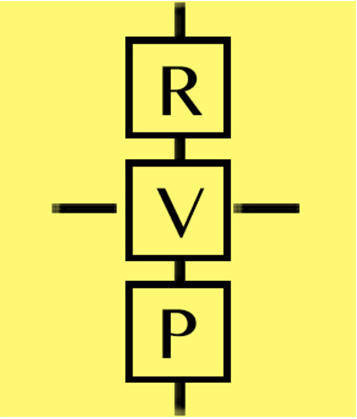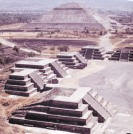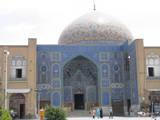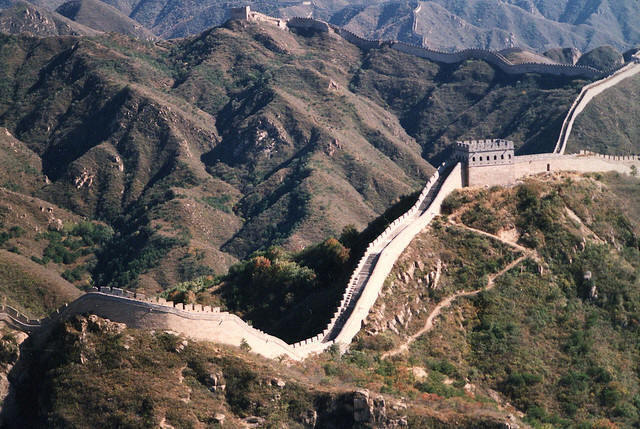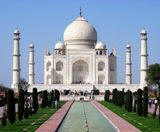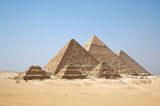|
Invitation
to an International conference
Values Embedded in Indian Philosophy
Varanasi, India January
10-12, 2013
with
Banaras Hindu University
Theme
In the present era of
value crisis caused by a conflict between the ancient values and
the post modernistic rush for material enjoyment, we think of
organizing the conference on Values for thorough deliberation of
its pros and coins and for coming out with an agreeable solution
that may be welcomed as a culmination of the two and may work as
a solution to the post modernistic crisis as well. Values
occupy utmost importance in life and society; they play a vital
role in the making of a life human. An atheist can deny the
existence of God but cannot deny the role of values he learns
since his birth first from his parents and later by society and
other sources that have been major in transforming him in to a
human being and then understanding the laws of nature properly
in a reflective way. The discussion in the conference will be
centralized to make points of human values relevant against
disguised purposes prevailing in corporate ideology.
For Indian sastras, life
is an obligation. Had there been no occasion to payoff the debts one
owes by birth, no life could be human .There is birth because
there are debts (ŗņa) it borrows from the earlier life to
payoff. Indians believe in three kinds of debts to pay out – (i)
to seers, sages and teachers (ŗşiŗņa), (ii) to fellow beings and
deities (devaŗņa) and (iii) to manes (pitŗŗņa). Tattirīya
samhitā 6/3/10/5 says that by practicing celibacy, by performing
sacrifices, and by begetting a son respectively, one pays off
those debts ). According to a view, the debts are not
three but five but according to Brāhmaņa- texts they are three
only because the bhūtaŗņa is included in devaŗņa and nŗŗņa is
included in pitŗŗņa. These five are discussed in coming
paragraphs in connection with five sorts of yajnas. In
brief, paying off those debts forms religious, social,
socio-ethical and cultural practices of life of man reasonable,
lively, and interesting. The philosophy lying behind it is that
if all of them are healthy and balanced, the life will be
peaceful and peace will be blissful. Thus, our utmost effort is
to insure their health and to protect the balance.
For incorporating the
changing faces of values for a better present living, a living
in consonance with the respect of the ancient and reception of
the new and thus fulfilling the gap between the two, Ancient
Philosophy of values requires to be viewed in the transition of
it in recent time.
Apart from the following
topics for deliberation in the conference scholars may select
any of the topics of their choice.
Sub-themes:
i.
Classical Values and the modern value-crisis
ii.
Myth of the Puruşārthasas
iii. Concept
of Values in Indian classical philosophy
iv.
Post modernity and the relevance of ancient values.
v.
Religio-ethical values.
vi.
Values in Higher Education.
vii. Socio-political
values.
viii. Concepts of Ŗta &
Sat
ix. Role of three debts (ŗṇatraya) in Indian life.
x. Values and Social obligation
xi. Individual & social values.
Last Dates:
Deadline for the abstract – November 30, 2012
Paper submission- December 20, 2012
Travel and Accomodation:
Participants will have to bear the cost of their travel, fooding
and lodging charges. The organizers will arrange their
accommodation during conference in the university guest houses
or in the guest houses near to university on their demand. They
may contact for this the following persons.
1. Dr. Jayant Upadhayay
(09415618968 drjayantupadhay@rediffmail.com)
2. Dr. Sanjay Kumar Gaur (09450534834 gaurskphil@rediffmail.com)
3. Email Address: philosophybhu@rediffmail.com
Organizing Committee:
Chief Patron:
Padamshri Dr. Lalji Singh, Vice-Chancellor, B.H.U.
Chairman:
Professor M.N. Rai, Dean, Faculty
of Arts, B.H.U.
Convener: Professor
D. N. Tiwari (dntphil@rediffmail.com)
Organizing Secretaries: Prof.
A. K. Rai (arvindkr@bhu.ac.in) & Dr.
Ananda Mishra (anandaphil@gmail.com)
Advisory Committee:
1. Dr.
U.C. Dubey (Professor)
2. Dr.
D.A. Gangadhar (Professor)
3. Dr.
S. Vijaya Kumar (Professor)
4. Dr.
A.K. Rai (Professor)
5. Dr.
S.P. Pandey (Professor)
6. Dr.
Kripa Shankar (Professor)
7. Dr.
D.B. Chaube (Professor)
8. Dr.
Mukul Raj Mehta (Research scientist ‘C’)
9. Dr.
Urmila Chaturvedi (Professor (MMV))
Working Committee:
1. Dr.
Sachchidanand Mishra (Associate Professor)
2. Dr.
R. K. Jha (Associate Professor)
3. Dr.
Abhimanyu Singh (Associate Professor)
4. Dr.
Jyotsana Srivastava (Associate Professor)
5. Dr.
D. Chaudhary (Assistant Professor)
6. Dr.
S.C. Dubey (Assistant Professor)
7. Dr.
Grace Darling (Assistant Professor)
8. Dr.
P.K. Bagde (Assistant Professor)
9. Dr.
Jai Singh (Assistant Professor (MMV))
Managing Committee:
1. Dr.
V.K. Mishra
2. Shri
N.C. Pandey
3. Dr.
S.K. Gaur
4. Dr. Jayant
Upadhayay
5. Dr. Bhupendra Shukla
6. Dr. Deepak Ranjan
7. Shri Rajiv Kumar
Singh
8. Shri Surya Prakash
Pandey
History
Banaras Hindu University is an internationally reputed temple of
learning, situated in the holy city of Varanasi. This Creative
and innovative university was founded by the great nationalist
leader, Pandit Madan Mohan Malaviya, in 1916 with the
cooperation of great personalities like Dr Annie Besant, who
viewed it as the University of India. Banaras Hindu University
ranks among the first few in the country in the field of
academic and research output. This university has two campuses,
3 institutes, 16 faculties, 140 departments, 4 advanced centers
and 4 interdisciplinary schools. The University is making its
mark at the national and international levels in a number of
frontier areas of Science, Social Science, Technology, Medicine
and Agriculture etc. The University family consists of about
15000 students belonging to all streams of life, castes and
religions and races, about 1700 teachers, and nearly 8000
non-teaching staff. A large number of students from foreign
countries like the U.S.A, the countries of Europe, Asia, Middle
East, Africa etc., come to study here. The university has taken
a leadership role in promoting new ideas, the spirit of
integration of the world, and cultivation of intellect and
culture. Banaras Hindu University is virtually a universe in
microcosm.
It was in the year 1898 that the Central Hindu College was
established in Varanasi by Dr. Annie Besant to whose sacred
memory India owes an eternal debt of gratitude for her manifold
and inestimable service in almost every sphere of life.
The Department of Philosophy started functioning in the Central
Hindu College soon after its establishment. Professor Ambika
Charan Ukil was the first Professor of Philosophy & Logic. He
joined the College in the year 1904 and left after a couple of
years. Professor Phani Bhusan Adhikari succeeded him. The
Central Hindu College was shifted from its building at Kamachha
to the University campus on the completion of its new building
in the year 1921. The Department of Philosophy started holding
its classes in this new building from August 1921.
The Department of Philosophy and Religion is one of the few
Departments which started functioning since the establishment.
Stalwart like Professor P.B. Adhikari, Prof. B.L. Atreya, Prof.
S. Radhakrishnan. Prof. S.K. Maitra, Prof. T.R.V. Murti, Prof.
N.K. Devaraja, Prof. J.L. Mehta were associated with this
Department. The Department presently has 16 faculties, 7
Non-teaching staff, more than 65 research scholars, 225 P.G.
students and 700 U.G. students. Presently Prof. Devendra Nath
Tiwari is heading the Department.
The Department of Philosophy and Religion offers two separate
post-graduate courses in (i) Philosophy (ii) Indian Philosophy
and Religion. The Department also runs one year advance Diploma
course in Indian Philosophy and Religion which is very popular
among foreign students. The reputed scholars from various parts
of the world are constantly visiting the Department of
Philosophy and Religion. The Department focuses on different
schools of Indian Philosophy, Indian religion, Comparative
religion and Comparative philosophy. Some of the important
research projects in this Department have been undertaken in the
fields of Advaita Vedānta, Buddhism, Śaivism, and other schools
of Indian Philosophy. Scholars have also been working on
Analytic Philosophy, Existentialism, Phenomenology, Philosophy
of Language and Religion. It also aims at an intensive study and
reinterpretation of classical Indian Philosophical Texts, so
that a new impetus and direction can be given to philosophical
thinking. It also aims at preparing authoritative source books,
pertaining to schools of Indian Philosophy in order to provide a
firsthand knowledge. It also proposes to translate the original
texts into Hindi and English. One of the main objectives of the
Department is to develop greater understanding of Philosophy,
Religion and Value-consciousness among scholars, students and
the masses. The organizers believe that this International
Conference will help in sustaining the Value-consciousness in
the post modern era.
|

